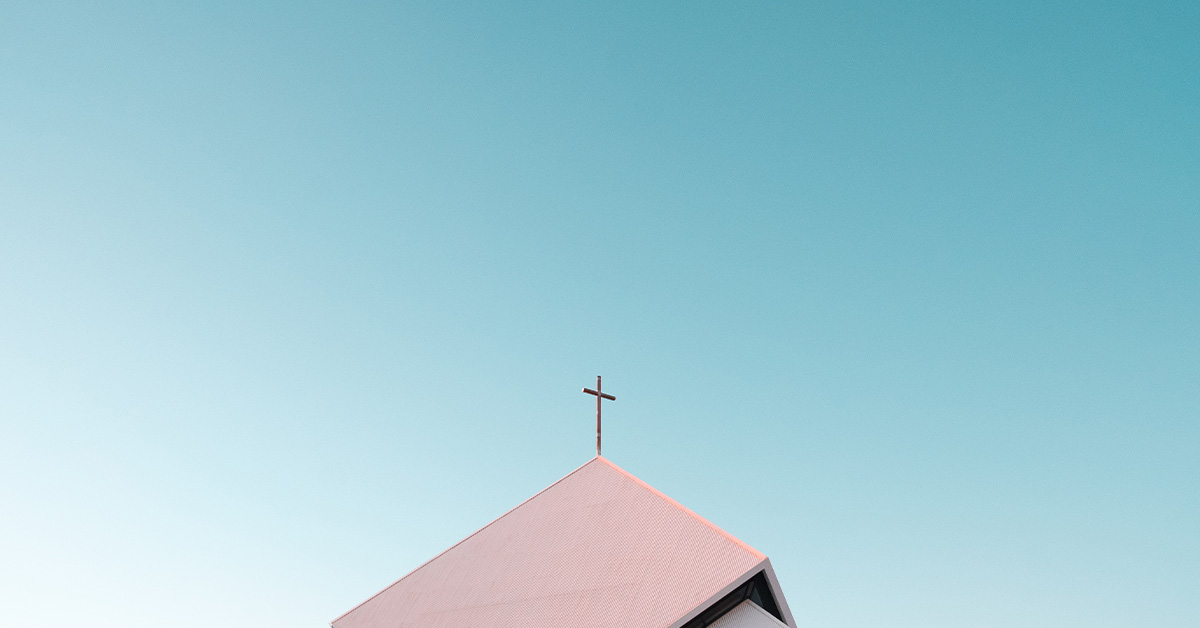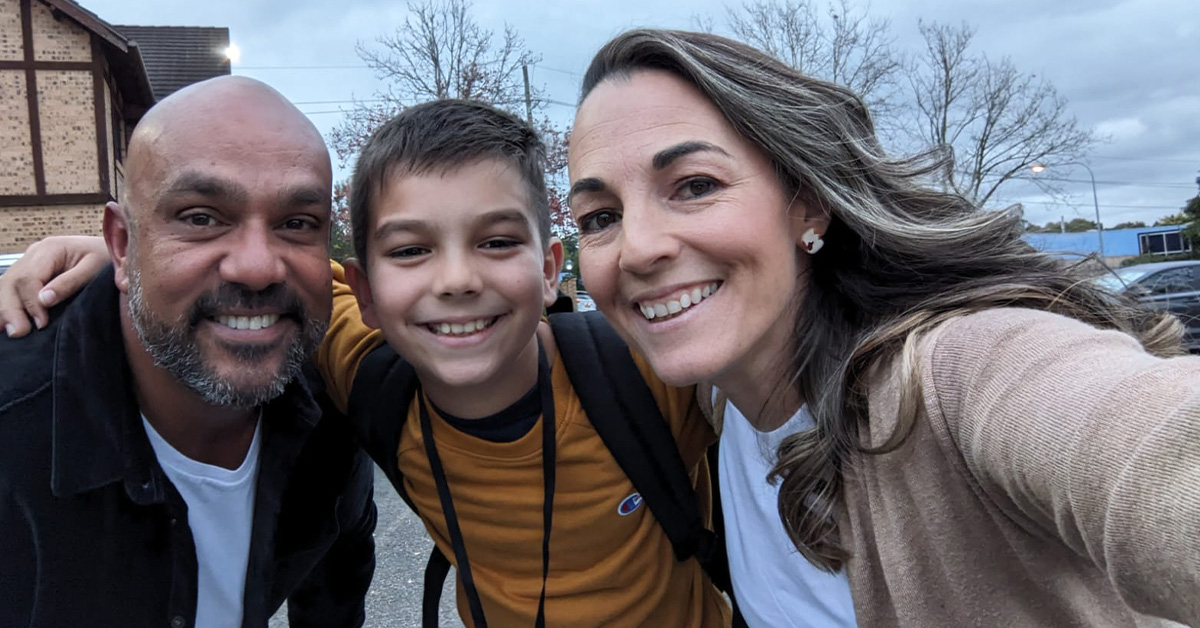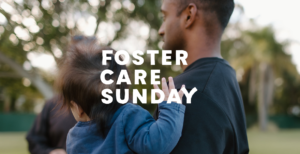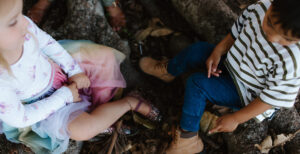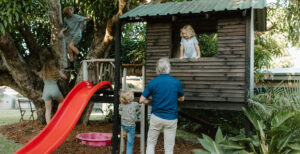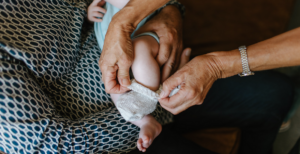No hero needed, just you. Noddy’s story
For Noddy, Ali and Jesse, pursuing Foster Care as a family was a four-year process, full of questions along the way. Looking back, they see it all as God’s timing.
We talked to Noddy about his motivations for fostering, some of the barriers people might face, and lessons they’ve learned so far.
Jesse, our miracle boy, came along after a thirteen-year journey. We’d always dreamt of having multiple kids. The idea of the ‘village’ was something we had grown up in the midst of and really valued; it’s the picture we had in our heads. However, pursuing this picture for our own family became a deep emotional rollercoaster.
We wanted a brother or sister for Jesse, so we started exploring adoption. We’d been privileged to travel and see a lot of the world and we knew of the need that existed. We thought maybe adoption was something God wanted us to pursue. In the first info session we went to, the messages we were picking up were not great; you’re too old, you’re a mixed-race couple. We looked at each other and thought, what are we even doing here, we’re never going to get a child placed with us. They then threw in some statistics around adoption and how it worked compared to Foster Care. They said that in the last year around three children were placed in adoption and there was a mile-long waiting list of families. In Foster Care, it was the opposite.
There was a long list of children waiting for immediate care because it’s not safe for them to be at home and not enough families to take them.
I thought to myself, hang on, why wouldn’t we be leaning into the problem that’s there with fostering? It’s so much bigger. The penny dropped for us. That was the start of us exploring Foster Care.
Our motivation was originally to build our family unit. We wanted our little boy to grow up with siblings, to have a tribe. Those walking towards adoption are often people who have struggled with fertility and who want a family unit and kids to call their own. When you walk in with that mindset it’s a posture and picture about what you want and about filling a particular need based on a desire that you have for yourself. I don’t say that flippantly, we walked that road for a long time. It’s a narrative that doesn’t translate to Foster Care though because the narrative needs to be around the child.
You need to go from a story that’s focused on what you want, to one that engages what is often a story of brokenness and the part you can play to bring restoration and help write a different story for a child. But you can’t get there until you deal with your own motivations of why you want to do it.
We’re hardwired to love our kids. And it’s still really hard to raise them. One of the barriers to Foster Care for me was not knowing how to love someone else’s child who’s walked through a bunch of difficult spaces and has some unhealthy things to deal with that I haven’t been a part of, when I haven’t been there since day one. How do you allow enough grace for that? The other factor was that our life was busy and complicated and full of its own set of challenges, and quite often I’d complain about not wanting any more of those challenges, so why on earth would I invite someone else’s set of problems into that? That was a roadblock for me. I couldn’t think about doing that willingly.
Things then shifted to more of a theological idea for me. I was preaching about ‘imago dei’ in every person where God loves them regardless of their awareness of Him and about God’s attributes and character and desire to restore and redeem things to even better than what it was before it was broken. I was confronted with the question of how can I talk about that and know in my heart of hearts that I’m not actually willing to lean into it?
I know firsthand what it is to come out of a family unit that has pain attached to it. My dad died when I was nine. As a kid I played up and acted out because of the experience of grief and as a teenager and young man I made some terrible decisions because of it. Reflecting on that, I realised that there are a bunch of kids from places that aren’t perfect and what they need is someone to track with them long enough to build a different narrative; that almost gives them freedom from the pain they’re in, and a gift to be able to imagine a different future, that doesn’t see them as a victim but instead sees them empowered as a human being who can do something extraordinary despite what’s happened in their life.
I then had a profound encounter with God, where things just went deeper. I had this amazing image of the fact that God has never stopped pursuing me. He’s been all over my life, at every turn. He’s actively put himself there because he’s chasing me.
I got a glimpse of what it is to be a father that relentlessly chases after His kids.
What wrecked me most when Jesse was born, beyond experiencing a love for him that I didn’t know a human could have, was the thought that my dad had that love for me and he didn’t get the chance to pursue it all his days. It got me thinking about the parents who don’t get to fulfil the hopes and dreams they have for their kids, and the kids who miss out on that. If we’re an extension of our God in heaven who pursues us relentlessly, then can we possibly find it in our hearts to give a bit of that glimpse to kids who aren’t being pursued by their natural parents because of circumstances, decisions, and the brokenness that exists; can we step into that gap?
It sounds cliché but we feel like we’ve been really blessed, and we want to be a blessing. How do you provide a safe environment that is full of grace, love, and kindness for a child who through no fault of their own needs a season, however long it may be, to encounter this in a surprising way? That’s our prayer every time we start talking about a placement. What is the thing in our home that we want them to encounter?
We try not to look at Foster Care only through the lens of what’s convenient for us. We try to look at it through the lens that asks what’s helpful to this entire situation? You can easily look at it as one layer of relationship: you and this foster child. You want consistency, you want to act as their parent, have them for a long period of time and be involved with them for the rest of their lives. For some people that’s their story. However, that’s not the only dynamic of relationship that’s going on. There’s also the dynamic of that child with their parents and immediate family, the foster family, the court system, the department, all these other elements. You’re one piece of the puzzle. It takes the collective to hope for the best outcome for that family unit. How we try to think about it is, what’s the small part we can play for the family unit as a whole? When a child comes into our home, our commitment and prayer is for redemption for the family unit.
At some point you open your hands and let go of what your desired outcome may be and trust that God may be at work and that you can’t see the end but He can. It gives you peace about just playing the part you have to play, whether it’s for a day, the rest of the year, or for the rest of their life.
Let’s be really clear, it isn’t easy. Our first placement was a nine-month-old baby; she was gorgeous. It was a really unique scenario. Between the adoption agency, department, Foster Care agency and the parents who had siblings who didn’t know what was going on. We were kind of like the stopgap in between, in case they changed their mind. She attached to us, we built an incredible bond with her, but our prayer remained that she would grow up knowing her siblings. When the family changed their mind and decided to take her back in, that was incredibly hard for us and we wept. We were also really happy because we felt like our prayer had been answered that this little girl would know her two older brothers and that her parents didn’t split them up.
The other part of that story and an example of the part you can play is that we’re still in touch with that family. They didn’t have a network around them; they were from overseas didn’t know how to access things. They were struggling with Mental health and Finances and no support of a wider family network. So the big question in it was, well, can we also provide some of that? That’s also part of the need for them.
You hear the stories. We know people who have welcomed the placement of a newborn and five years later they are taken away. They’ve known no other family unit. It is like, what? No! Part of the very real challenge of Foster Care is that you have to walk in with open hands. You’re one piece of a very complex puzzle.
We work really hard at compartmentalising, working through schedules, getting in routines, it’s the human way of trying to make things nice and neat and to move to a level of success. But when was the last time everything went to plan perfectly, in anything? It just doesn’t. Whether it’s your job, family, house, there’s always something that happens. God has given us an adventurous spirit, one that’s not full of fear but power and love and self-control. If we’re going to reflect the image of our creator, then yes, He is a God who brings order, but He also brings seasons that look really different and in that the natural world adapts and responds.
If we trust He’s a God of order and in control, that allows us to respond and move and change with seasons, then we recognise that we don’t need to try and be the God of order in our own lives, we’ve already got one.
What we need to do, is we need to be the ones to respond to whatever is happening in our seasons. The better skill is to learn how to be resilient; to learn how to respond, change, shift, and hold things loosely, seeing it as an adventure that our Creator has got us on.
There’s a magnet on our fridge that we’ve held onto that says, “Foster Care: no hero needed, just you.” One of the barriers I originally had regarding Foster Care, was looking at people who foster and thinking they’re superstars compared to me. How do they do that? How do they have that many kids? How do they invite those problems and issues in? How do they stay so patient? How do they turn the other cheek constantly? You hear the horror stories and they’re the things that stick in your mind and you’d think I’m just not that good a person. But someone wisely said to me, “Don’t put me on a pedestal. It doesn’t take superheros; it takes ordinary people.” When you just see yourself as being ordinary and it’s the norm, rather than the exception to the rule, that’s when we’ll start to solve the problem.
The hero isn’t just one person. It genuinely takes community to do this.
When we received our first placement, we didn’t have anything we needed. We didn’t have a cot, stroller, highchair, safety gate, nothing you’d have in your normal prep for a child to come and we had two days to get it done. So we called around and messaged our friends and family and church and school community. Within 24 hours, everything we needed and more was in our home. We may be the face of that moment with that child but what she will never know is that there were around 50 people that loved her, invested in her and gave something so that she could have a moment that was good.
If you’re interested in Foster Care, you can learn more about it here.
If Foster Care isn’t for you but you want to do something to support kids and families involved in this space, find out what you can do here.
